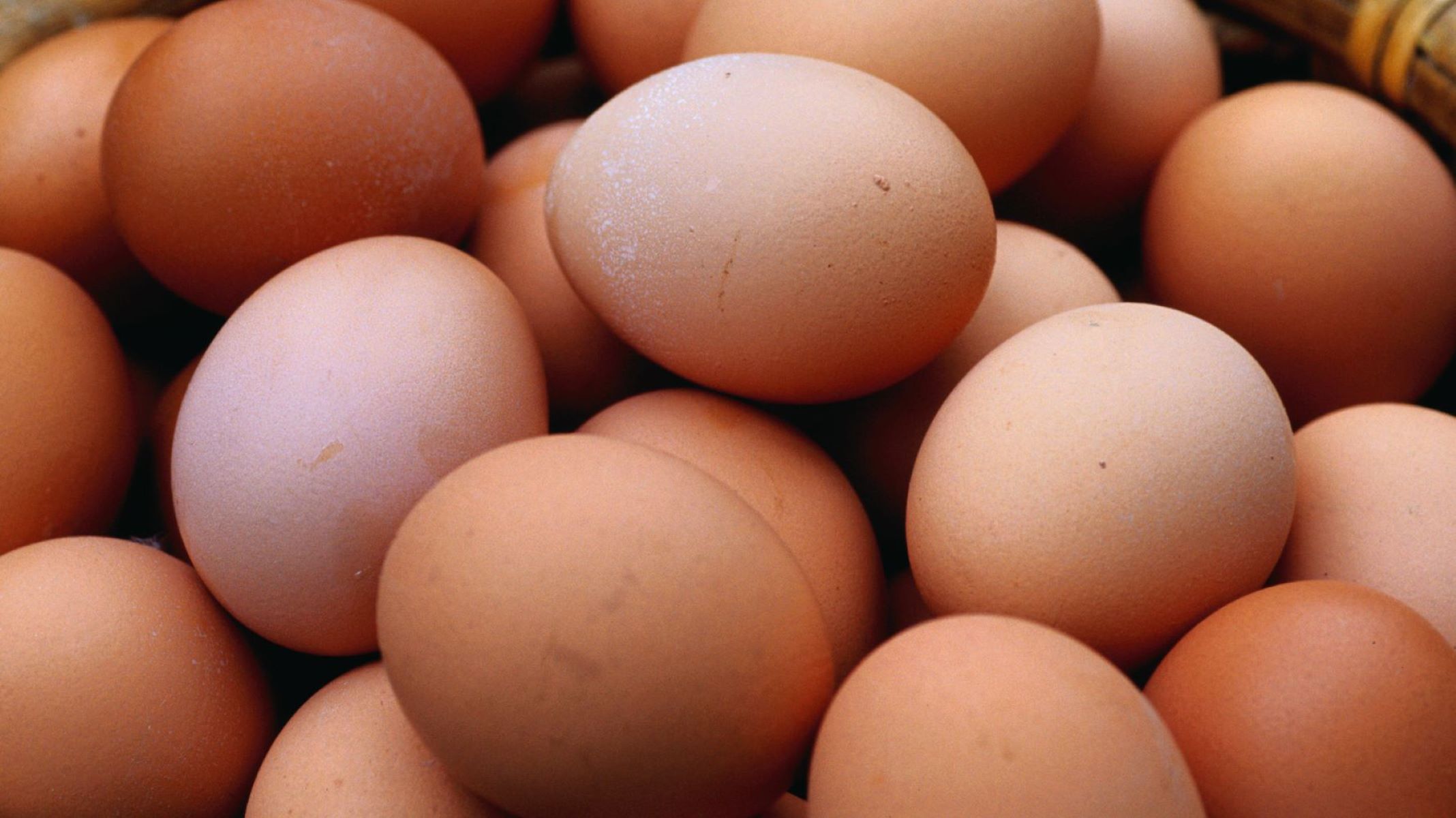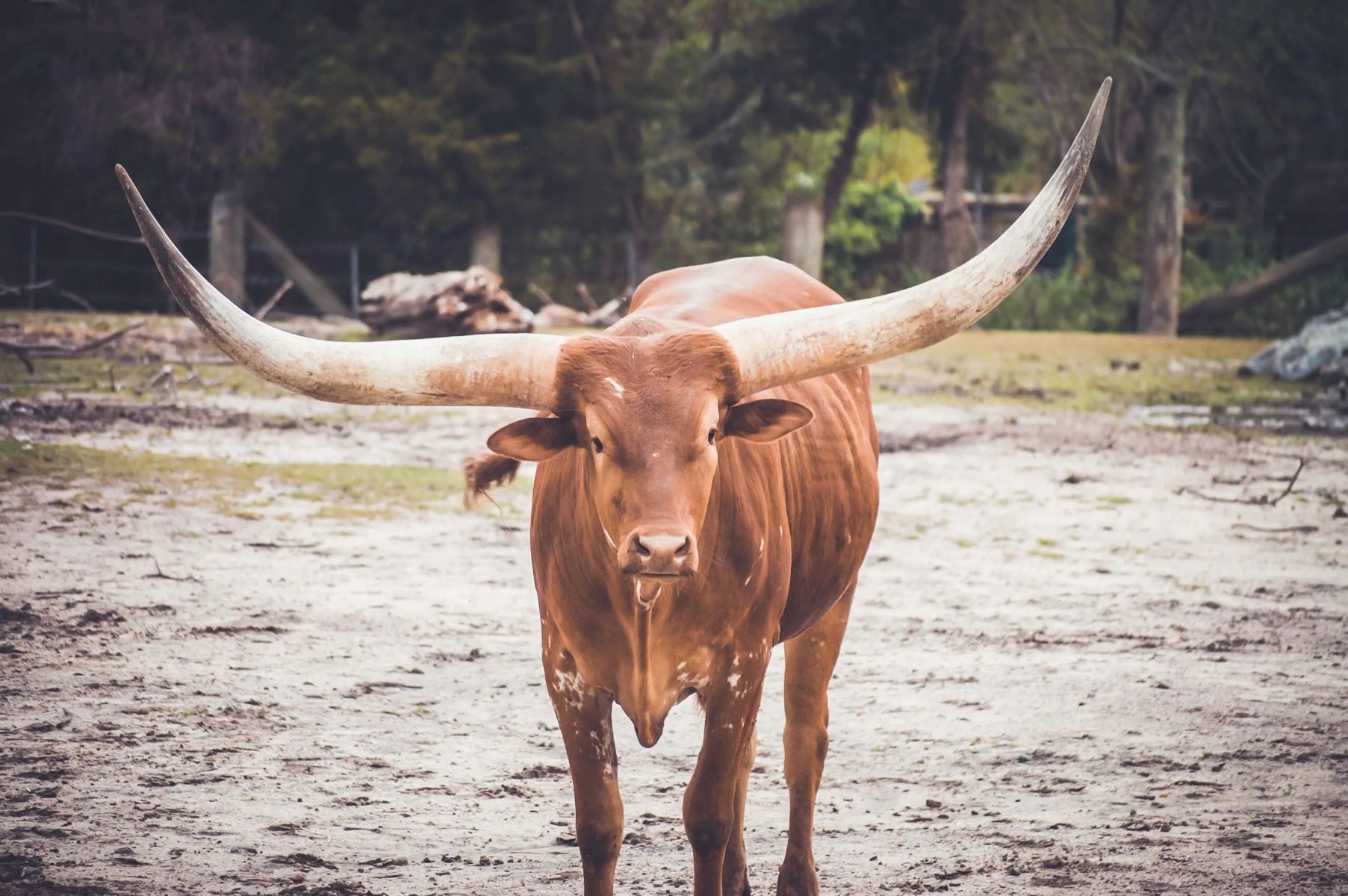Home>Food and Cooking>The Ultimate Guide To Cage-Free, Free-Range, And Pasture-Raised Eggs: Unveiling The Hidden Truths!


Food and Cooking
The Ultimate Guide To Cage-Free, Free-Range, And Pasture-Raised Eggs: Unveiling The Hidden Truths!
Published: January 4, 2024
Discover the truth about cage-free, free-range, and pasture-raised eggs in this comprehensive guide. Explore the differences and make informed choices for your food and cooking needs.
(Many of the links in this article redirect to a specific reviewed product. Your purchase of these products through affiliate links helps to generate commission for Regretless.com, at no extra cost. Learn more)
Table of Contents
Introduction
Eggs have long been a staple in the human diet, valued for their versatility and nutritional benefits. However, the way in which eggs are produced can vary significantly, leading to a wide array of options available to consumers. Understanding the differences between cage-free, free-range, and pasture-raised eggs is crucial for making informed choices that align with personal values and dietary preferences.
In recent years, there has been a growing interest in the welfare of egg-laying hens, prompting a closer examination of egg production methods. This has led to an increased emphasis on transparency within the egg industry, with a particular focus on the living conditions of the hens and the impact of various farming practices on the environment.
As consumers become more conscientious about the origins of their food, the demand for ethically produced eggs has surged. This has sparked a surge in the availability of cage-free, free-range, and pasture-raised eggs in grocery stores and farmers' markets, providing consumers with a broader range of options than ever before.
In this comprehensive guide, we will delve into the nuances of each egg production method, shedding light on the hidden truths behind the labels. From exploring the living conditions of the hens to unraveling the nutritional disparities and environmental implications, this guide aims to equip readers with the knowledge needed to navigate the egg aisle with confidence.
By uncovering the distinct characteristics of cage-free, free-range, and pasture-raised eggs, we can gain a deeper understanding of the ethical, environmental, and nutritional considerations associated with each production method. Through this exploration, we can empower ourselves to make informed choices that resonate with our values and contribute to a more sustainable food system.
Join us on this enlightening journey as we unveil the hidden truths behind cage-free, free-range, and pasture-raised eggs, and embark on a quest for conscientious consumption and mindful living.
Cage-Free Eggs
Cage-free eggs are sourced from hens that are not confined to cages and are allowed to roam freely within a barn or enclosed area. This production method represents a significant departure from conventional egg farming practices, where hens are typically confined to small cages with limited space for movement. The transition to cage-free systems has been driven by a growing awareness of animal welfare concerns and a desire to improve the living conditions of egg-laying hens.
In cage-free environments, hens have the freedom to engage in natural behaviors, such as walking, perching, and nesting. This enhanced mobility can lead to improved welfare for the hens, as they are able to express a wider range of natural behaviors compared to their caged counterparts. Additionally, cage-free systems often provide hens with access to nesting boxes, allowing them to lay eggs in a more natural and comfortable setting.
While cage-free systems offer certain advantages in terms of animal welfare, it is important to note that not all cage-free facilities are created equal. The actual living conditions within cage-free barns can vary widely, ranging from spacious and enriching environments to crowded and minimally stimulating spaces. As a result, consumers are encouraged to seek out information about the specific practices and standards employed by egg producers to ensure that the cage-free eggs they purchase align with their ethical considerations.
From a nutritional standpoint, cage-free eggs may offer some distinct advantages over conventional eggs. Studies have suggested that eggs from cage-free hens may contain higher levels of certain nutrients, including vitamin E and omega-3 fatty acids, due to differences in diet and lifestyle. Additionally, some consumers believe that the ethical considerations associated with cage-free egg production contribute to a higher-quality product, further influencing their purchasing decisions.
As the demand for cage-free eggs continues to rise, the egg industry has witnessed a notable shift towards cage-free production methods. This transition reflects a broader societal shift towards ethical and sustainable food choices, as consumers increasingly seek out products that align with their values. By opting for cage-free eggs, consumers can play a role in driving positive change within the egg industry, supporting practices that prioritize animal welfare and ethical considerations.
In the next section, we will explore the concept of free-range eggs, shedding light on the unique characteristics of this production method and its implications for consumers and the environment.
Free-Range Eggs
Free-range eggs are derived from hens that are afforded access to the outdoors, allowing them to engage in natural behaviors such as foraging and dust bathing. This production method represents a significant departure from conventional egg farming practices, where hens are typically confined to indoor facilities. The transition to free-range systems has been driven by a growing emphasis on animal welfare and a desire to provide hens with opportunities to express their natural behaviors.
In free-range environments, hens have the freedom to roam outdoors, exploring their surroundings and soaking up natural sunlight. This access to the outdoors can have a positive impact on the welfare of the hens, as it allows them to engage in a more diverse range of activities compared to their confined counterparts. Additionally, free-range systems often provide hens with access to indoor shelter, where they can seek refuge from inclement weather and roost during the night.
It is important to note that the specific living conditions within free-range systems can vary, with some operations offering expansive outdoor areas for hens to roam, while others may provide more limited access to outdoor space. As a result, consumers are encouraged to seek out information about the specific practices and standards employed by egg producers to ensure that the free-range eggs they purchase align with their ethical considerations.
From a nutritional perspective, free-range eggs may offer distinct advantages over conventional eggs. Research has indicated that eggs from free-range hens may contain higher levels of certain nutrients, including vitamin D and omega-3 fatty acids, which can be attributed to the hens' access to a more varied diet and exposure to natural sunlight. These nutritional differences are a key consideration for consumers who prioritize the quality and composition of the eggs they consume.
The demand for free-range eggs has surged in recent years, reflecting a broader shift towards ethical and sustainable food choices. By opting for free-range eggs, consumers can support farming practices that prioritize animal welfare and environmental stewardship, contributing to a more conscientious and compassionate food system.
Next, we will delve into the concept of pasture-raised eggs, shedding light on the unique characteristics of this production method and its implications for consumers and the environment.
Pasture-Raised Eggs
Pasture-raised eggs are derived from hens that are raised in a natural, pasture-based environment, where they have continuous access to outdoor space for foraging, dust bathing, and engaging in natural behaviors. This production method represents the pinnacle of ethical and sustainable egg farming, as it prioritizes the welfare of the hens and emphasizes their connection to the natural environment.
In pasture-raised systems, hens are given the freedom to roam outdoors, exploring lush pastures, and foraging for insects, seeds, and plants. This access to a diverse range of natural foods allows the hens to supplement their diet with nutrients not typically found in conventional feed, leading to eggs with a distinct flavor profile and nutritional composition. Additionally, the exposure to natural sunlight and fresh air contributes to the overall well-being of the hens, promoting physical and psychological health.
Unlike cage-free and free-range systems, which may offer varying degrees of outdoor access, pasture-raised environments prioritize expansive outdoor space for hens to express their natural behaviors. This commitment to providing ample outdoor room for the hens sets pasture-raised eggs apart, reflecting a deep-rooted respect for animal welfare and a dedication to fostering a symbiotic relationship between the hens and their surroundings.
From a nutritional standpoint, pasture-raised eggs are renowned for their exceptional quality and nutritional richness. Studies have shown that eggs from pasture-raised hens contain higher levels of essential nutrients, including vitamin D, vitamin E, and omega-3 fatty acids, compared to conventional eggs. The hens' diverse diet and exposure to natural elements contribute to the superior nutritional profile of pasture-raised eggs, making them a sought-after choice for health-conscious consumers.
The demand for pasture-raised eggs has grown as consumers increasingly prioritize ethical and sustainable food options. By choosing pasture-raised eggs, consumers actively support farming practices that prioritize animal welfare, environmental conservation, and regenerative agriculture. This conscientious choice not only reflects a commitment to ethical consumption but also contributes to the preservation of traditional farming methods that promote harmony between animals, the land, and the community.
In summary, pasture-raised eggs represent the epitome of ethical egg production, offering hens the opportunity to thrive in a natural and enriching environment while yielding eggs of exceptional quality and nutritional value. By embracing pasture-raised eggs, consumers can align their dietary choices with their values, championing a food system that celebrates the well-being of animals, the integrity of the land, and the nourishment of individuals and communities.
Understanding Egg Labels
When browsing the egg section at the grocery store, consumers are often confronted with an array of labels and terms that can be perplexing. Understanding the significance of these labels is crucial for making informed purchasing decisions and aligning with personal values. Let's unravel the meanings behind common egg labels to demystify the distinctions.
Conventional Eggs
Conventional eggs, also known as battery-cage eggs, originate from hens confined to small, crowded cages within industrial farming facilities. These labels typically indicate that the hens are subjected to minimal space and limited opportunities for natural behaviors. While conventional eggs are widely available and affordable, they have drawn criticism for their ethical and environmental implications.
Cage-Free Eggs
Cage-free eggs stem from hens that are not confined to cages and are allowed to roam freely within a barn or enclosed area. This label signifies a departure from conventional battery-cage systems, offering hens the opportunity to engage in natural behaviors. However, the specific living conditions within cage-free facilities can vary, highlighting the importance of discerning between different cage-free practices.
Free-Range Eggs
Free-range eggs are sourced from hens that have access to the outdoors, allowing them to forage and explore their surroundings. This label denotes a departure from confinement, providing hens with the freedom to roam and engage in natural behaviors. However, the degree of outdoor access can vary among different free-range operations, necessitating scrutiny of the specific farming practices.
Pasture-Raised Eggs
Pasture-raised eggs originate from hens raised in a natural, pasture-based environment, with continuous access to outdoor space for foraging and natural behaviors. This label signifies the highest standard of ethical and sustainable egg production, reflecting a deep commitment to animal welfare and environmental stewardship.
Organic Eggs
Organic eggs are derived from hens raised in accordance with organic farming standards, which prohibit the use of synthetic pesticides, genetically modified organisms (GMOs), and antibiotics. This label indicates that the hens are provided with organic feed and have access to outdoor areas, aligning with principles of ecological sustainability and animal welfare.
Nutritional Considerations
In addition to understanding the living conditions of the hens, consumers may consider the nutritional differences among various types of eggs. Factors such as diet, lifestyle, and environmental exposure can influence the nutrient composition of eggs, leading to variations in essential vitamins, minerals, and fatty acids.
By deciphering the nuances of egg labels and considering the associated ethical, environmental, and nutritional implications, consumers can make conscientious choices that resonate with their values and contribute to a more sustainable and compassionate food system.
Nutritional Differences
When it comes to nutritional content, the type of eggs we choose can have a significant impact on our dietary intake. While all eggs are renowned for their protein content, essential vitamins, and minerals, the specific nutritional profile of eggs can vary depending on the farming methods employed and the living conditions of the hens.
Cage-free, free-range, and pasture-raised eggs are often heralded for their potential nutritional advantages over conventional eggs. These differences can be attributed to several factors, including the hens' diet, lifestyle, and exposure to natural elements.
Cage-Free Eggs
Cage-free eggs may offer certain nutritional benefits, including higher levels of vitamin E and omega-3 fatty acids. The hens' access to a more varied diet and increased mobility within barns can contribute to these differences in nutrient composition. As a result, consumers who prioritize these specific nutrients may opt for cage-free eggs to supplement their dietary intake.
Free-Range Eggs
Free-range eggs are recognized for their potential nutritional advantages, including higher levels of vitamin D and omega-3 fatty acids. The hens' access to the outdoors and exposure to natural sunlight can lead to variations in the nutrient content of the eggs. For individuals seeking to enhance their vitamin D and omega-3 intake, free-range eggs may represent a compelling choice.
Pasture-Raised Eggs
Pasture-raised eggs are celebrated for their exceptional nutritional richness, containing elevated levels of essential nutrients such as vitamin D, vitamin E, and omega-3 fatty acids. The hens' access to diverse forage and exposure to natural elements in pasture-based environments contribute to the superior nutritional profile of these eggs. As a result, consumers looking to elevate their nutrient intake may gravitate towards pasture-raised eggs for their exceptional nutritional value.
By considering the nutritional differences among cage-free, free-range, and pasture-raised eggs, consumers can make informed choices that align with their dietary preferences and health goals. Whether prioritizing specific vitamins, minerals, or fatty acids, the distinct nutritional profiles of these eggs offer individuals the opportunity to tailor their dietary intake to their unique nutritional needs.
In the pursuit of mindful and health-conscious consumption, understanding the nutritional disparities among egg types empowers individuals to make informed decisions that support their well-being and dietary objectives.
Environmental Impact
The environmental impact of egg production extends beyond the nutritional qualities and ethical considerations associated with different farming methods. It encompasses a range of factors, including resource utilization, waste management, and ecological sustainability. Understanding the environmental implications of various egg production methods is crucial for consumers who seek to make environmentally conscious choices and support agricultural practices that minimize harm to the planet.
Cage-free, free-range, and pasture-raised egg production methods each have distinct environmental footprints. In conventional battery-cage systems, the intensive use of resources such as water, feed, and energy, coupled with the management of waste generated by confined hens, can contribute to environmental strain. The transition to cage-free, free-range, and pasture-raised systems presents opportunities to mitigate some of these environmental impacts, albeit to varying degrees.
Cage-free systems, which provide hens with more space and opportunities for natural behaviors, may lead to reduced environmental stress compared to conventional systems. The ability of hens to move freely within barns and access nesting boxes can contribute to improved waste management and resource utilization. However, the overall environmental impact of cage-free systems is contingent upon the specific practices and infrastructure employed by egg producers.
Free-range systems, with their emphasis on outdoor access for hens, offer potential environmental benefits, including opportunities for natural foraging and reduced reliance on artificial lighting and ventilation. The integration of outdoor spaces into egg production can foster a more symbiotic relationship between hens and the natural environment, promoting ecological balance and resource efficiency.
Pasture-raised systems, characterized by hens' continuous access to outdoor pasture environments, represent a pinnacle of environmental stewardship in egg production. The integration of hens into natural ecosystems allows for the regeneration of pastures, reduction of environmental pollution, and the preservation of biodiversity. The holistic approach to egg production in pasture-raised systems aligns with principles of regenerative agriculture and ecological sustainability.
By considering the environmental impact of egg production methods, consumers can align their purchasing decisions with their commitment to environmental conservation and sustainable agriculture. Supporting farming practices that prioritize resource efficiency, waste reduction, and ecological harmony can contribute to a more sustainable and resilient food system, fostering a positive impact on the planet for future generations.
Ethical Considerations
Ethical considerations play a pivotal role in the conscientious consumption of eggs, prompting consumers to reflect on the treatment of hens, the impact on local communities, and the broader implications for animal welfare and social responsibility. The choice between cage-free, free-range, and pasture-raised eggs is inherently tied to ethical considerations, as it encompasses the treatment of hens, the preservation of natural ecosystems, and the support of sustainable farming practices.
Cage-free, free-range, and pasture-raised egg production methods are underpinned by distinct ethical principles, reflecting varying degrees of commitment to animal welfare and environmental stewardship. Cage-free systems represent a departure from conventional battery-cage practices, offering hens the freedom to move within barns and engage in natural behaviors. While this transition signifies progress in terms of animal welfare, the specific living conditions within cage-free facilities can vary, necessitating scrutiny of individual farming practices.
Free-range systems, with their emphasis on outdoor access for hens, align with ethical considerations related to the provision of natural environments and opportunities for foraging. The integration of outdoor spaces into egg production reflects a commitment to respecting the natural behaviors of hens and promoting their physical and psychological well-being. However, the degree of outdoor access and the quality of outdoor environments can vary among different free-range operations, prompting consumers to discern between varying standards of ethical practice.
Pasture-raised systems embody the highest standard of ethical egg production, prioritizing the welfare of hens and the preservation of natural ecosystems. The continuous access to outdoor pasture environments allows hens to thrive in a natural and enriching setting, fostering a harmonious relationship between the hens and their surroundings. By supporting pasture-raised egg production, consumers champion farming practices that honor animal welfare, ecological sustainability, and the interconnectedness of animals, the land, and local communities.
Ultimately, ethical considerations guide consumers in making choices that resonate with their values, promoting a food system that values compassion, transparency, and responsible stewardship. By aligning with ethical principles in egg consumption, individuals contribute to the advancement of ethical farming practices and the cultivation of a more conscientious and compassionate food system.
Conclusion
In conclusion, the world of egg production is rich with diversity, offering consumers a spectrum of choices that extend beyond mere dietary preferences. The journey through the realms of cage-free, free-range, and pasture-raised eggs has unveiled a tapestry of ethical, environmental, and nutritional considerations, inviting individuals to reflect on the impact of their choices on animals, the planet, and their own well-being.
As we navigate the egg aisle, we are presented with an opportunity to align our values with our consumption habits, advocating for ethical farming practices, environmental sustainability, and the welfare of egg-laying hens. The transition from conventional battery-cage systems to cage-free, free-range, and pasture-raised methods signifies a collective shift towards a more conscientious and compassionate approach to egg production.
Cage-free eggs, with their emphasis on providing hens with freedom of movement within barns, represent a step forward in addressing animal welfare concerns. However, the variability in living conditions within cage-free facilities underscores the importance of discerning between different standards of practice.
Free-range eggs, characterized by outdoor access for hens, offer a glimpse into the natural behaviors of these animals, promoting their physical and psychological well-being. The integration of outdoor spaces into egg production signifies a commitment to respecting the innate tendencies of hens and fostering a more symbiotic relationship between animals and the environment.
At the pinnacle of ethical egg production, pasture-raised eggs embody a holistic approach that prioritizes the welfare of hens and the preservation of natural ecosystems. The regenerative impact of pasture-raised systems extends beyond the welfare of hens, contributing to the health of the land and the vitality of local communities.
In the pursuit of mindful consumption, the nutritional disparities among cage-free, free-range, and pasture-raised eggs offer individuals the opportunity to tailor their dietary intake to their unique nutritional needs. The potential nutritional advantages of these eggs, coupled with their ethical and environmental implications, empower consumers to make informed choices that resonate with their values.
By embracing the hidden truths behind cage-free, free-range, and pasture-raised eggs, individuals can embark on a journey towards conscientious consumption and mindful living. With each choice, we contribute to a more sustainable and compassionate food system, where the welfare of animals, the integrity of the environment, and the nourishment of individuals are celebrated and upheld.











